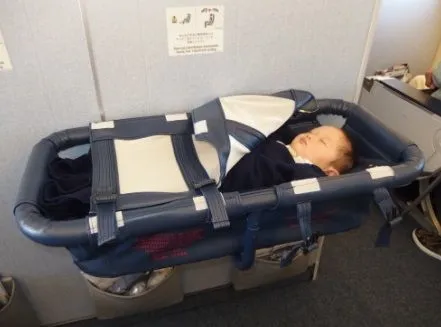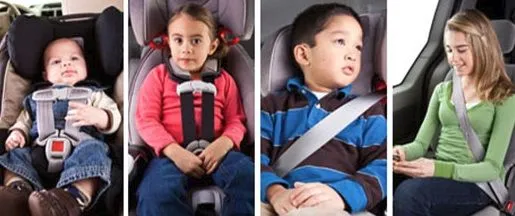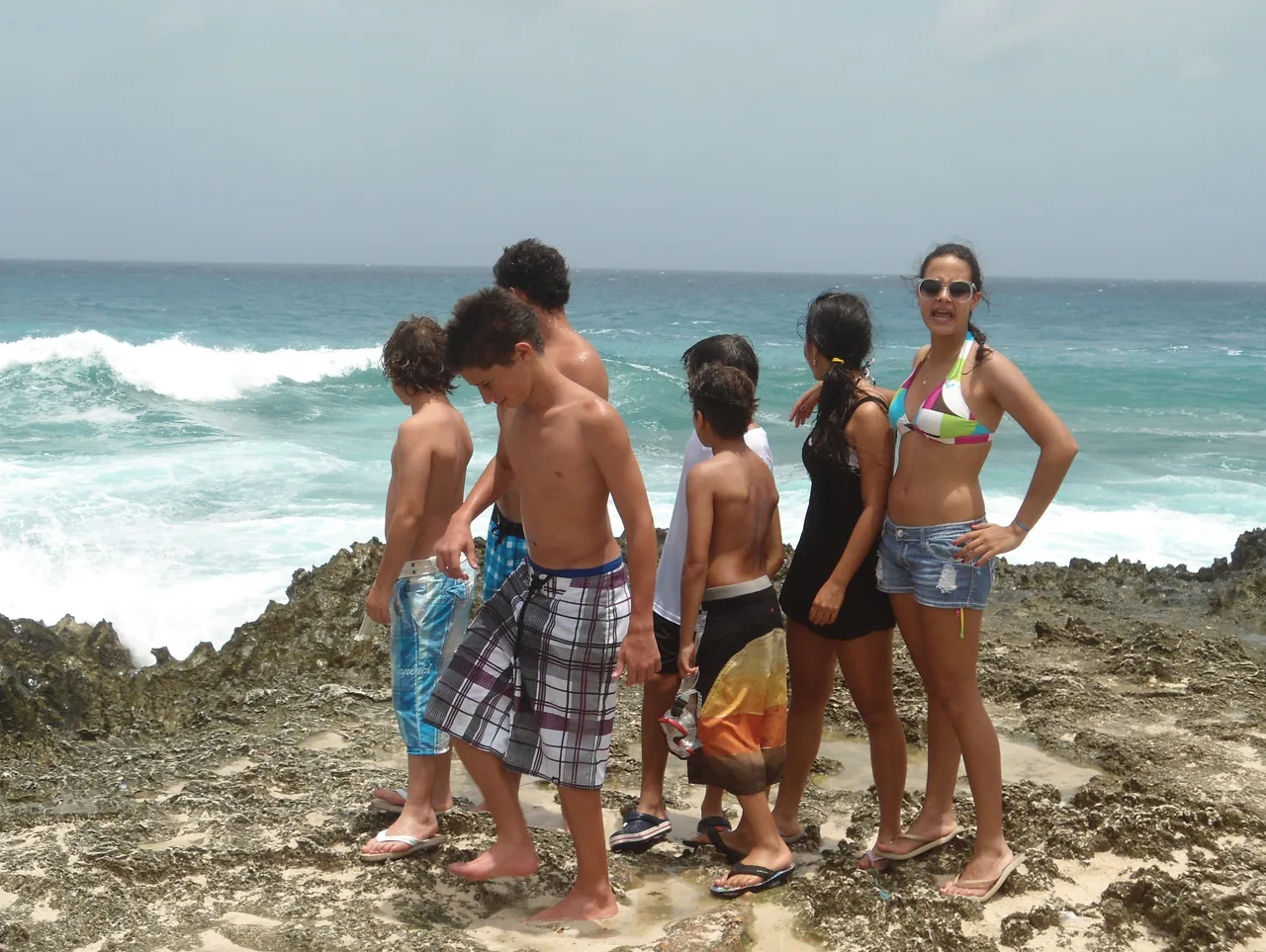Children are more vulnerable and more susceptible than adults, both to acquire some infections and to expose themselves to risks such as skin infections, animal bites, respiratory diseases and acute diarrhea. The latter two are more common in young children under two years of age.
Planing is the best way to prevent any mishaps with children.

For this reason, any travel must be prepared in advance in order to take appropriate preventive measures for children. Some vaccines may require several pre-trip doses and some special dose preparation medicines.
The preparation of a trip requires the evaluation of the child considering different aspects; age, background, immune status, destination, type of travel, duration and conditions. Keeping these elements in mind an infectologist pediatrician or doctor specialist in traveler's medicine can make special recommendations according to the type of travel and circumstances, especially when it comes to exotic destinations.
A relevant and novel point in the market is the possibility offered by phone apps, which allow, through self-management tools, facilitate and accelerate access to medical care in the event that it is required. This implies an additional factor of tranquility for parents traveling with children. The passenger can obtain a medical consultation 24 hours a day, from anywhere in the world. It is attended by doctors who speak in their language. In order to access the service, it is only necessary to have a device with internet connection (pc, notebook, or android mobile device or iOS - either tablet or smartphone) and the download of APP mobile and / or web access so that immediately you can be attended by a health professional.
Some pointers gaining peace of mind when traveling with children
1 - When the trip is by plane.
The vast majority of children have no problems with air travel. The most frequent complication is ear pain, which can occur mainly in infants during descent. To avoid it, it is recommended to suck liquids, either breast milk or others in bottles. The child should be kept upright during descent.

Caution should be exercised in air travel with healthy newborns less than 1 to 2 weeks old. Some airlines may restrict the travel of very young children. In children with cardiac or pulmonary diseases, greater precautions should be taken, making a previous specialized consultation, to obtain specific recommendations.
Keeping the child entertained during the flight is critical. The aisle seats allow you to walk with the children. Bring spare clothing, toys and entertainment activities of their choice.
During air travel, the seat belt should be separated from the parent to avoid abdominal compression of the infant.
2 - Transportation safety.
In automobiles, the use of a chair for infants and young children should be strongly recommended. The use of safety belts should be reinforced for all occupants of the vehicle.

Dizziness: Transportation-associated dizziness is common in children older than 2 to 3 years. This can be prevented or decreased by placing the child in a place with good visibility and in the most stable part of the vehicle. Avoid reading during the trip. In some cases, the consultation with the pediatrician will allow to make some recommendations of medicines.
3 - Skin protection.
Solar exposure: measures should be taken to avoid complications arising from sun exposure, i.e., reduce outdoor activities between 10:00 and 14:00 hrs, when the sun is strongest. In infants under 6 months of age, avoid direct exposure to the sun as much as possible. Sun block should be applied and repeated application after bathing or excessive perspiration. Consult your pediatrician for the best FPS recommendation for your child. Give children plenty of water to avoid dehydration.

4 - Skin infections, wounds and bites.
Traveling children are at higher risk for skin infections and animal bites compared to adults. The risk is higher in Asian & African countries. It is important to prevent these problems by avoiding risky activities and behaviors. Wear sneakers or closed shoes in wooded or jungle areas and sandals on the beach. Monitor children to avoid approaching animals with a potential risk of transmitting rabies such as stray dogs and monkeys.
Perhaps better ask children for extreme care when touching zoo animals.

There are several diseases transmitted by insects, especially in tropical areas. Dengue is the most frequent and the only available prevention measure is to avoid mosquito bites.
5 - Insect bites.
Preventing stings involves wearing appropriate clothing such as long sleeves and pants at dusk when insect activity begins to expose the skin as little as possible to its bites.
Pre-treat clothing with permethrin before traveling to a high-risk area of malaria. If the bedroom does not have air conditioning, ideally sleep under mosquito net. Infants should sleep covered with mosquito nets, bed or cribs.

Make sure windows have mosquito nets. Use insecticidal sprays prior to bedtime and vaporizing devices at night for environmental control of mosquitoes.
Use of repellent: Repellents containing DEET 20% are recommended. Can be used from 2 months of age. Under 2 years of age, do not apply. The repellent should be applied over the sun block. Wash the child after repeated use during the day.
6 - Immunizations
The application of special vaccines will depend on the destination to be visited, the risks of exposure, the age of the child and contraindications to certain vaccines. All children must have their immunization schedule up to date or advanced according to risk. You should always consult your doctor before the trip, in case you have to advance a vaccine, depending on the risk at the destination.
7 - Special vaccines
If you are traveling with your child to places where there is a risk of Yellow Fever, Meningitis, Hepatitis, Typhoid Fever or others, a specialist in Traveler's Medicine should be consulted. Vaccines have a specific age to start using and some have complications, so benefit and risk should be evaluated.
8 - Documentation
Remember that the documentation needed to travel with minors varies according to the country you are traveling to. If travel is with only one of parents will have to perform extra procedures, otherwise they will not let you leave the country.
Have the most wonderful vacation with all in family !!!!

References:
http://adventuregeardownload.com
http://www.zoomiami.org
http://kidstraveldoc.com
http://www.tc.gc.ca
https://www.123rf.com
http://ngomyanmar.blog107.fc2.com
http://www.telegraph.co.uk/travel
Are you into this type of topics, plus others like science, technology, human state, politics? Keep the conversation alive …. UPVOTE & perhaps, RESTEEM, and in addition you might want to click on the FOLLOW for further interesting posts. If visiting, please don’t leave without placing your comment(s).